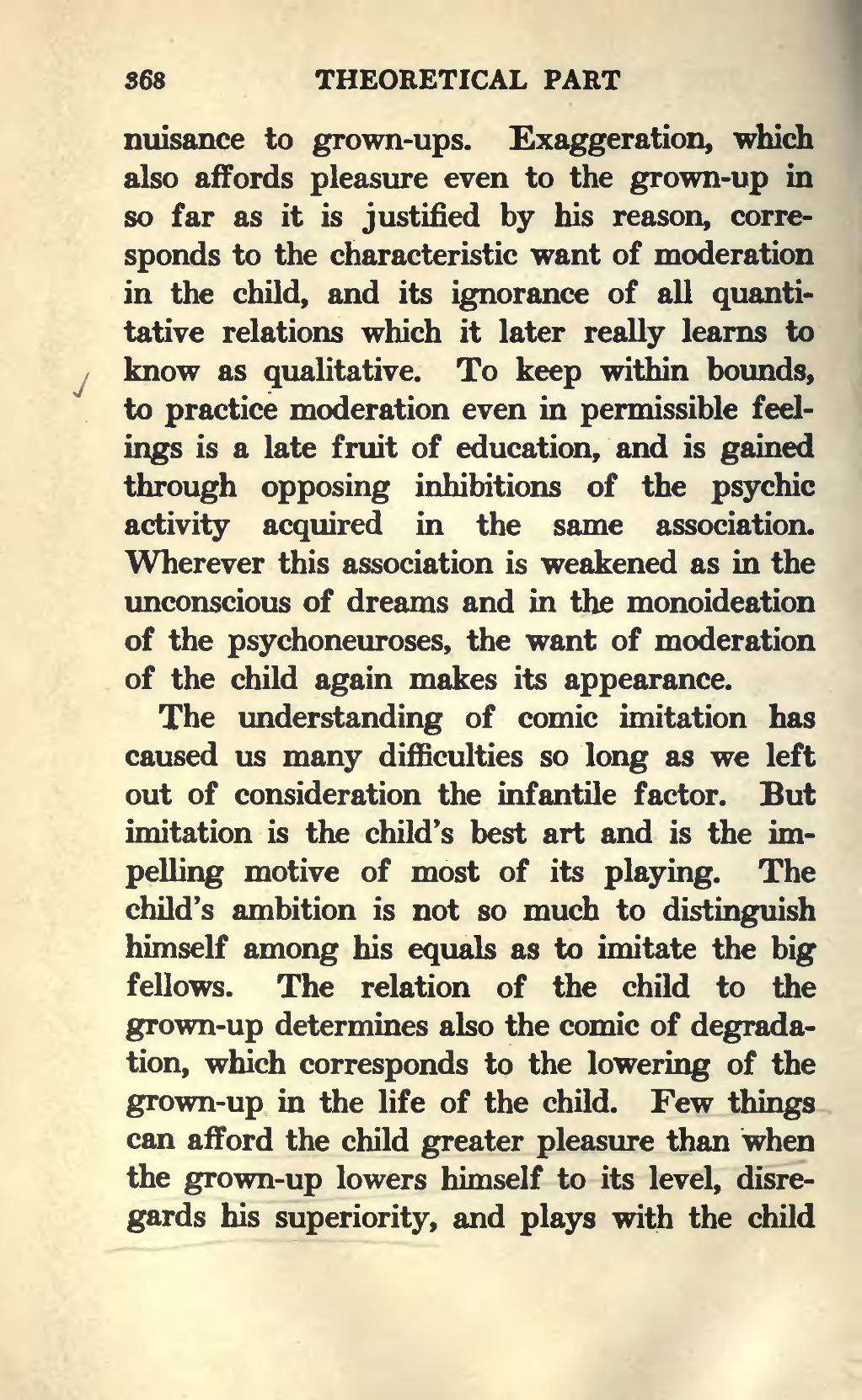to grown-ups. Exaggeration, which also affords pleasure even to the grown-up in so far as it is justified by his reason, corresponds to the characteristic want of moderation in the child, and its ignorance of all quantitative relations which it later really learns to know as qualitative. To keep within bounds, to practice moderation even in permissible feelings is a late fruit of education, and is gained through opposing inhibitions of the psychic activity acquired in the same association. Wherever this association is weakened as in the unconscious of dreams and in the monoideation of the psychoneuroses, the want of moderation of the child again makes its appearance.
The understanding of comic imitation has caused us many difficulties so long as we left out of consideration the infantile factor. But imitation is the child’s best art and is the impelling motive of most of its playing. The child’s ambition is not so much to distinguish himself among his equals as to imitate the big fellows. The relation of the child to the grown-up determines also the comic of degradation, which corresponds to the lowering of the grown-up in the life of the child. Few things can afford the child greater pleasure than when the grown-up lowers himself to its level, disregards his superiority, and plays with the child as
